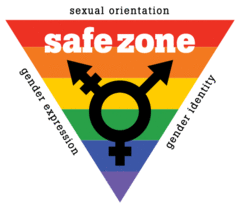Holidays and Customs

Shabbat
Shabbat, (the Sabbath) is a key part of Jewish life; it is observed as a day of rest and spiritual rejuvenation. Shabbat takes place from nightfall on Friday to nightfall on Saturday. In the home and synagogue, blessings are made and candles are lit to welcome Shabbat and signify the start of the festival. The Kiddush prayer is recited to represent the holiness of the day. Blessings are made over wine and challah (the special bread made with eggs and sometimes sweetened and braided).
High Holy Days
As fall approaches, Jews throughout the world prepare for a unique ten-day period of prayer, self-examination, fasting, and repentance. It is time for the Yamim Noraim, the Days of Awe, the High Holy Days: Rosh HaShanah and Yom Kippur. These holidays are preceded by a month of reflection: the Hebrew month of Elul. During this time, morning worship includes special penitential prayers and concludes with the blowing of the shofar as a reminder of the approaching season of atonement. In some communities, this is also a time to visit the graves of loved ones.
Sukkot
Sukkot, a Hebrew word meaning “booths” or “huts,” refers to the Jewish festival of giving thanks for the fall harvest, as well as the commemoration of the forty years of Jewish wandering in the desert after Sinai.
Simchat Torah
Simchat Torah, Hebrew for “rejoicing in the Law”, celebrates the completion of the annual reading of the Torah. Simchat Torah is a joyous festival, in which we affirm our view of the Torah as a tree of life and demonstrate a living example of never-ending, lifelong study. Torah scrolls are taken from the ark and carried or danced around the synagogue seven times.
Hanukkah
Hanukkah (also spelled Chanukah), meaning “dedication” in Hebrew, refers to the joyous eight-day celebration during which Jews commemorate the victory of the Macabees over the armies of Syria in 165 B.C.E. and the subsequent liberation and “re-dedication” of the Temple in Jerusalem.
Tu B Sh’vat
Tu B Sh’vat or the “New Year of the Trees” is Jewish Arbor Day. The holiday is observed on the fifteenth (tu) of Sh’vat. Scholars believe that Tu B Sh’vat was originally an agricultural festival, marking the emergence of spring.
Purim
Purim is celebrated by the reading of the Scroll of Esther, known in Hebrew as the Megillat Esther, which relates the basic story of Purim. Under the rule of King Ahashuerus, Haman, the King’s prime minister, plots to exterminate all of the Jews of Persia. His plan is foiled by Queen Esther and her cousin Mordechai, who ultimately save the Jews of the land from destruction. The reading of the megillah is typically a rowdy affair, punctuated by booing and noise-making when Haman’s name is read aloud.
Passover
Pesach, known as Passover in English, is a major Jewish spring festival, commemorating the Exodus from Egypt over 3,000 years ago. The ritual observance of this holiday centers around a special home service called the seder (meaning “order”) and a festive meal; the prohibition of chametz (leaven); and the eating of matzah (an unleavened bread).
Yom Hashoah
Yom HaShoah, also known as Holocaust Remembrance Day, occurs on the 27th of Nissan. Shoah, which means catastrophe or utter destruction in Hebrew, refers to the atrocities that were committed against the Jewish people during World War II. This is a memorial day for those who died in the Shoah.
Yom HaZikaron & Yom HaAtzmaut
Since the establishment of the State of Israel, four new holidays have been added to the Jewish calendar – Yom HaShoah (Holocaust Remembrance Day), Yom HaZikaron (Memorial Day), Yom HaAatzmaut (Independence Day), and Yom Yerushalayim (Jerusalem Day). In Israel, these holidays are observed as national holidays.
Shavuot
Shavuot is a Hebrew word meaning “weeks” and refers to the Jewish festival marking the giving of the Torah at Mount Sinai. Shavuot, like so many other Jewish holidays began as an ancient agricultural festival, marking the end of the spring barley harvest and the beginning of the summer wheat harvest.
* Information courtesy of URJ.org





